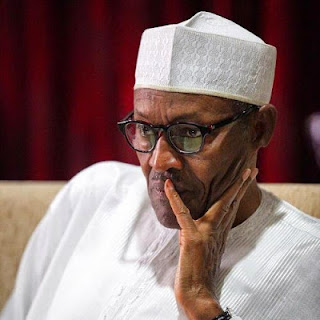Written by the Editorial Board of the Guardian Newspaper
That Nigerians have been facing difficult economic challenges and headwinds beyond the ordinary calls for pity, lamentation and above all, concerted efforts by those who manage the economy at reversing the trend. Major economic indicators point to severe erosion of purchasing power of ordinary Nigerians with fast depreciating currency, now at N445 to the Dollar in the parallel market, rising interest rates, galloping inflation, unemployment, and misery index. Life is just extremely hard for the people.
Economic growth has decelerated from 6.4% in 2014 through 2.7 per cent in 2015 to -2.06% in second quarter of 2016. It is further projected that Nigeria’s projected average growth rate of four per cent between 2017 and 2020 would still be below the rate recorded in 2014.
The difficult economic situation has been attributed to several factors, including falling oil prices and cut in oil production. Delays in government’s response especially, with the presentation and approval of 2016 budget and spending plans have also contributed. The lack of fiscal buffers, structural constraints, and fuel, electricity, and foreign exchange scarcities further compounded economic difficulties being experienced by Nigerians.
There appears to be no easy short-cuts for policy makers to deal with the economic challenges and headwinds. But this country cannot help it by observing that the present administration appears rudderless with a lack of overarching economic vision and philosophy, which explains its knee-jerk reactions to ideas from the left and those from the right and in disjointed and uncoordinated approaches between the fiscal and monetary sides.
The administration appears to be caught in the middle of an economic class warfare between the poor masses and the few members of the elite and oligarchs who have cornered the commanding heights of the economy in banking, telecommunications, and industrial sectors and whose insatiable appetite as economic predators is now making them champion the sale of national assets which they can buy for the cheap in collusion with members of the political class who have amassed stolen wealth.
This is not the time to despair in the midst of recession and not a time to succumb to economic predators, but to demonstrate political leadership at the highest level. To use the words of former U.S. President Bill Clinton in his first inaugural speech in 1993, we are in the depth of winter, but we must force the spring.
A spring reborn in Africa’s largest economy and democracy must bring forth the vision to reinvent Nigeria and galvanise its citizens. This should start with overcoming the current visionless and rudderless economic leadership in the country, with its lack of overarching economic philosophy. The administration now more than ever needs to show political leadership by clearly articulating its economic vision and effectively communicating it to Nigerians.
As this newspaper has espoused before, there is still need for rolling development plans, articulating strategies, policies, programmes, projects and financing requirements as well as their sources to tackle the productive sectors of agriculture, manufacturing, and mining, and also power and transportation infrastructure deficits.
Moving from the rhetoric about economic recession to shared and sustained prosperity requires a clear and consistent focus on people, who are at the heart of and should be the primary beneficiaries of socio-economic development. A people-driven development is still missing in the discourse on getting out of recession. While the focus has been on the Federal Government to bail the economy out of recession, people-driven development should be embraced at the state government and local community levels, which ties in with the urgent need for more devolution of power and resources.
All Nigerians know enough why Nigeria is not working. Now is the time to let the country work. There has been enough jamboree of conferences and seminars. The President, the economic management team, the National Assembly and state governments should seize the moment. We must harvest from these bad times and learn from it. We must prevent the current economic recession from turning into an economic depression. Nigeria must force an economic spring from the depth of this cold horrible winter.
(adsbygoogle = window.adsbygoogle || []).push({});


